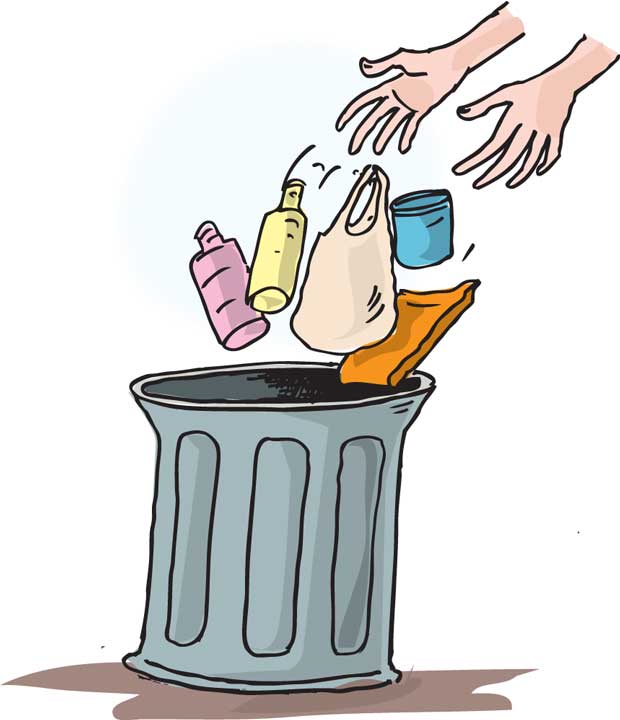14 Jul 2017 - {{hitsCtrl.values.hits}}
Though the United States, which is not only one of the most powerful countries but also one of the biggest environmental polluters, has decided to withdraw from the Paris climate change accord, Sri Lanka has thankfully joined the rest of the world in taking effective measures to win the battle against climate change or global warming. US President Donald Trump has come in for much criticism in his country and worldwide for what is seen as a selfish and potentially dangerous decision to pull the United States out of the treaty it signed on April 22, 2016 and ratified later.

He described it as part of his policy of putting “America first” but most analysts say he has isolated the US and put “America alone” while the widely respected new French President Emmanuel Macron has appealed to the US to put “Planet Earth First”.
On Tuesday, the Cabinet decided that the Central Environmental Authority (CEA) -- which works directory under President Maithripala Sirisena -- should ban the use of polythene, lunch sheets, rigifoam boxes and shopping bags from September 1. The CEA will impose the ban on the import, manufacture and sale of lunch sheets and the use of polythene for decorations. The aim is to gradually end the use of polythene and thus minimize its environmental impact.
The short term measures also include a ban on the manufacture, import or sale of containers, plates, cups or spoons made of polystyrene, a versatile plastic and a ban on the sale of processed or cooked meals packed in polythene containers. Also banned is the burning of polythene and plastic in open places. Mid-term measures include tax concessions for the import of machinery used for the production of biologically degradable plastics and a cess tax of 15% on the import of plastic raw material and goods. In the long term the government hopes to completely ban the import of recycled plastic products. That recycling will be done in Sri Lanka, as part of the solution to the garbage crisis.
The Cabinet also decided to promote paper, cloth or reed bags or biologically degradable plastics for customers when buying items in supermarkets or other stores. This is an area where every responsible and eco-friendly family needs to cooperate with the government. Until the 1970s when people went shopping most of them carried beautifully made cloth bags. The trend for polythene and sili sili bags began with the globalised capitalist market economic process which Sri Lanka swallowed wholesale and now we are told that in the sea fish are dying after eating polythene and many of us may be unknowingly eating a little polythene. We are giving it to our children also. No wonder most of us are falling sick more often because of the wholesale if not large scale sili sili culture which could more appropriately be described as a silly culture. It may be the easy way. But as responsible citizens we need to go the right way. This is so important because we are told that if we do not curb and gradually stop the polythene plastic trend, by 2050 the sea will contain more plastic bottles than marine species.
Earlier also in 2015, the National Unity Government decided to ban the manufacture, sale and use of polythene products below 20 microns. It was to come into effect from January 1, 2016. But polythene manufacturers who complied with the order complained to the media that polythene products such as lunch sheets and polythene bags below 20 microns were in the market illegally. This week also the government said the law on the use of polythene that is less than 20 microns will continue but CEA approval needs to be obtained for its use. We hope this will be strictly and honestly implemented so that Sri Lanka could boast of being a polythene-free country whatever Donald Trump does or does not do in the US.
29 Oct 2024 29 Oct 2024
29 Oct 2024 29 Oct 2024
29 Oct 2024 29 Oct 2024
29 Oct 2024 29 Oct 2024
29 Oct 2024 29 Oct 2024